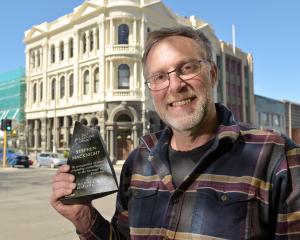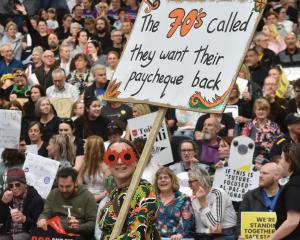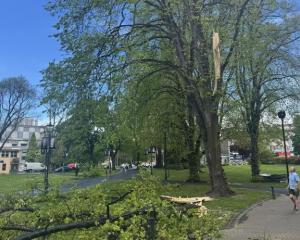Dunedin Mayor Dave Cull said he was pleased with the decision, when contacted after the Government's announcement yesterday.
The refugees will arrive in May, but Mr Cull did not know how many would come.
Dunedin joins the existing resettlement locations of Auckland, Waikato, Manawatu, Wellington and Nelson.
Mr Cull said there was a ''surge'' of support from the Dunedin community, including businesses.
The refugees would help alleviate the city's ''demographic gap'', as many would have young families.
''It's culturally enriching for the city to have diversity and new people coming in.''
The city had spare state housing capacity, and Mr Cull expressed confidence the Government would not sell the state houses needed by the refugees.
''I think Mr [Michael] Woodhouse would have something to say as the minister for immigration if his department made this decision, and then another department said `we're going to take the houses away'.''
He acknowledged some people would not welcome the refugees.
Some detractors were motivated by ''prejudice and bigotry''; others were genuinely fearful.
''I can understand why people, especially after Paris, would have a few reservations, but I'm assured the screening will be very thorough.
''I think it's important that the refugees we get here are running away from those terrorists - that's the point.''
Mr Cull said Immigration New Zealand officials quizzed him on Wednesday about whether the expressions of support from throughout the city were genuine and broadly felt ''and I was able to give them that assurance''.
Asked if the city could hold a party to welcome the refugees, he said he had not thought that far ahead, but liked the idea.
''Yes, that would be lovely; I think it would be great to make them feel welcome from the moment they step off the plane.''
Earlier this month, Dunedin city councillors voted to endorse a bid by the Dunedin Refugee Steering Group to bring refugees to the city.
The Government has agreed to take 750 Syrian refugees over the next two and a-half years.
All the refugees will spend six weeks at the Mangere Refugee Resettlement Centre before being funnelled to the resettlement centres.












